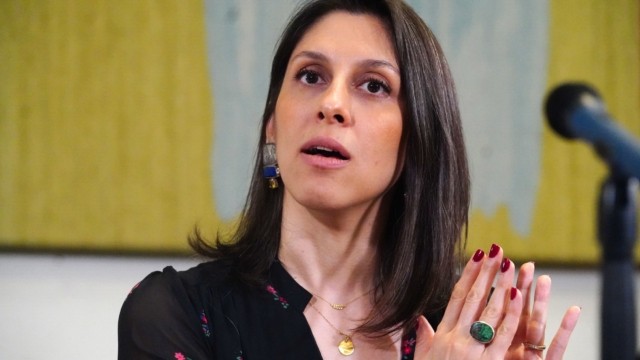By Ben Kerrigan-
Nazanin Zaghari-Ratcliffe release appears to be connected to the £400m paid by the UK government for an arms debt owed to Iran dating backing back to 70’s.
Although both the UK and the Iranian governments said the fully paid debt should not be connected to the release of Ratcliffe, the timing of the British Iranian’s release, after six long years, for a debt dating back four decades is highly suspect.
Yet, the idea that the UK would pay the huge sum of £400K just to release the Iranian duel also seems farfetched. After the EU sanctioned Iran’s defense ministry in 2008, and Iran won a declaration from the British domestic courts that the money was owed, it was clear the debt was never going to just evaporate into thin air. Payment for the debt was never forthcoming, but the fact payment of the debt was as recently as last year seen to be a precondition for Ratcliffe’s release makes the connection more logical than not.
Coincidences of this magnitude are not consistent with the historical dynamics of politics. That said, one politician from Westminster, who wouldn’t have his name on record suggested that the massive payout would not have been made for Ratcliffe’s release per say, without other considerations being in the mix.
The politician anonymously said: ”the timing of Ratcliffe’s release so close to the sudden debt payment of £4ook is extraordinary. What you may be surprised to know is that it has likely been made as some kind of olive branch to Iran to ensure it does not support Russia by selling them arms or providing them with arms in the middle of this illegal war with Ukraine. The release of the Iranian’s may have just come with it as part of some overall peace or unifying deal”.
Ratcliffe, who appeared at a press conference in Westminster, spoke publicly for the first time after spending six years in prison:
The British-Iranian was speaking publicly for the first time since her dramatic return to the UK last week, after spending six years of detention in Iran.
Speaking from Portcullis House, Ms Zaghari-Ratcliffe, she challenged the credit her husband, Richard Ratcliffe, granted Foreign Secretary Liz Truss for her release.
“I have seen five foreign secretaries change over the course of six years,” she said.
“How many foreign secretaries does it take for someone to come home? It should have been one of them eventually.
“We all know… how I came home. It should have happened exactly six years ago.”
Something Off The Brits
Ratcliff said she had been told by Iranian authorities shortly after her arrest that they wanted “something off the Brits” and that they would not let her go until they had got it. She thanked her husband, who has campaigned tirelessly over the last six years, and all those who have worked for her release.
Mr Ratcliffe joked that it was “nice to be retiring” from his role as a campaigner.
Describing the moment of getting off the plane last week and seeing her daughter Gabriella again as “precious”, she said she had been waiting for that moment for such a long time.
“I had been waiting for that moment for such a long time,” she said.
“It was lovely to get to hold her, to braid her hair and to brush her hair. That was a moment that I really, really missed.”
Reunited: Ratcliffe finally reunited with her family Image:PA
She added that she was now looking forward to getting to know Gabriella better and doing everyday things like taking her to school.
Plot Allegation
Ms Zaghari-Ratcliffe, a project manager for the Thomson Reuters Foundation, was detained while visiting her parents in Iran in April 2016, following accusations she was plotting to overthrow the Iranian government.
She was given a five-year sentence in September 2016 and in April of last year was given another year on charges of propaganda against the government.
She has always said that she was only in Iran to visit family. Ms Zaghari-Ratcliffe also used the event to draw attention to the plight of other dual nationals still detained in Iran.
Morad Tahbaz, who has British, Iranian, and American citizenship, remains in detention, alongside other detainees being held on various allegations of working to undermine the Iranian regime.
“I believe that the meaning of freedom is never going to be complete until such time that all of us who are unjustly detained in Iran are reunited with our families,” Ms Zaghari-Ratcliffe said.
“There are so many other people – we don’t know their names – who have been suffering in prison.”
Another British-Iranian national, Anoosheh Ashoori, was released at the same time as Ms Zaghari-Ratcliffe.
Mr Tahbaz’s daughter, Roxanne, also appeared at the conference, and said her family felt her father had been “abandoned and left behind” in Iran.
She said they had been told by the Foreign Office that Mr Tahbaz would be included in any deal to release hostages in Iran, and called on the prime minister and the foreign secretary to continue to work for his release.
Ratcliffe’s release from prison , and her time there has changed her life forever.
She may yet turn into a campaigner for the release of others like her still in prison.




